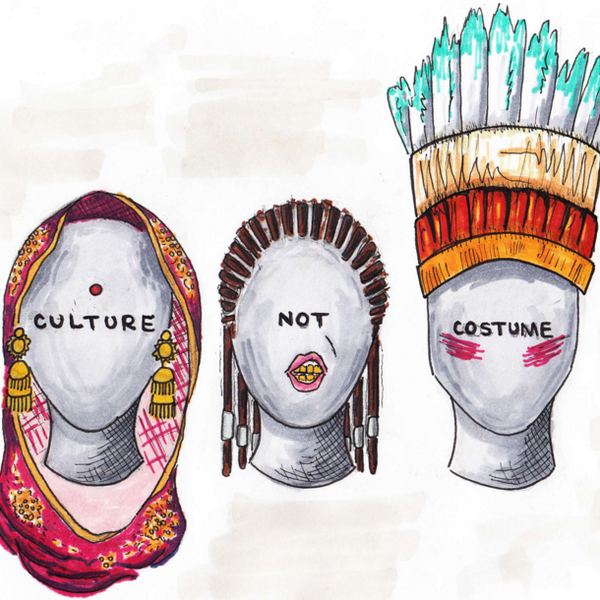This is not an article about the necessity of voting for a Democrat over a Republican in this year's general election, or vice versa. In recent years, the United States has become so polarized that it sometimes seems that compromise and conversation are impossible.
Discussions of that nature would be most effective, I believe, through face-to-face conversation: the image of a dissenter's face will help keep dialogue polite. So this article will not tackle whether one should vote for the Democratic or Republican nominee for president. Rather, it will address which of the Democratic candidates one should support.
If one proceeds from the premise that Democrats are in agreement that a Democrat must be elected president come November, then one might assume that discourse on who that Democrat should be ought to be civil. After all, that premise suggests Democrats should support whoever the candidate will be come November. That has not always been the case, however.
A trip to the comments section on any article on either Hillary Clinton or Bernie Sanders will show the vitriol some supporters of either candidate have or the other. Supporters of Clinton claim Sanders's policies are wholly unimplementable, and Hillary is more experienced than Bernie. Supporters of Sanders argue Clinton is bought by Wall Street, and only Bernie can bring substantial change to Washington.
Are those substantive criticisms of each Democratic candidate? Possibly. But at this point, those particular criticisms have been repeated so much that they serve only to reinforce established biases. So, this article will try to address some of the common critiques faced by each candidate.
Hillary Clinton is bought by major corporations:
Bernie Sanders and his supporters (and Martin O'Malley and his supporters, when he was still campaigning) have made much of the fact that Clinton has received much of her financial support from major corporations, including pharmaceutical companies and investment banks, and that she has received six figures in speaking fees for speaking for investment banks. That she has received money from these institutions is indisputable. Usually when a group donates to a campaign, it does so under the assumption that the candidate will champion their interests; thus Clinton's detractors assume she will stump in some form for Wall Street. She says she isn't, however, and it is safe to assume she understands her support will wither if she does anything seen as favorable to the top 1% (of which she is a part).
There is also this obscure fact: Hillary Clinton was on the board of directors of Walmart in the six years preceding her husband's election to the presidency. As a director, she championed better representation of women in management and the need for a comprehensive environmental program; however, she remained silent on other topics, such as Walmart's antagonizing of unions.
Bernie Sanders is too radical to get anything done:
Sanders is the most liberal of the candidates running for president, and it's not even close. Among the policies he supports are a single-payer health care system; free tuition at public colleges and universities, which he intends to fund by levying a tax on Wall Street speculation; and the decriminalization of marijuana. The makeup of Congress suggests Sanders will find it difficult to accomplish anything on his agenda if he is elected president.
Policies may not be the problem, however. President Obama has been more conservative than Sanders has been; that did not stop then Senate Minority Mitch McConnell from saying in an interview that his number one goal was ensuring Obama was a one-term president. If one assumes Clinton's policies will be similar to Obama's, there's not much reason to assume she'll have better luck dealing with the Republicans (unless one wants to postulate that Republican opposition to Obama was because of his race. But then why would a left-wing woman have any better luck?) This is without mentioning that Sanders has a more extensive history of pushing through reform than any other candidate.
Furthermore, being that Sanders is more radical than Clinton, he is more likely to generate excitement among his base, which will lead them to turn out and vote for non-presidential candidates in greater numbers. If Congress is the problem, Sanders is more likely to flip Congress from red to blue.
Hillary Clinton will say anything to get elected:
This criticism stems from the fact that Clinton often changes her views to better synchronize with her constituents. In a vacuum, this should not be seen as a bad thing: people should be allowed to change their minds. Possibly the complaint comes from her timing: right when her constituents come around to a certain viewpoint, she joins them. Again, this theoretically should not be seen as a bad thing: one would hope that a politician would represent their voters to the best of their ability. This is likely cynicism more than anything else.
Then again, her service on Walmart's board of directors looms large, as does her support of Barry Goldwater and then Nelson Rockefeller in the 1960s. To her credit, Clinton does not hide this aspect of her past: she included it in her autobiography. That she switched from a Republican to a Democratic in law school--30 years before she ran for a political office of her own--suggests that not all of her changes in views, if any, have been motivated by political expediency.
The argument that Clinton changes her views too frequently is mostly brought up to contrast with Bernie Sanders, who has been a Democratic Socialist since college. There is something to be said for someone whose views have remained constant for 50 years--provided the national consensus has moved toward those views over time rather than away from them. The fact that this has been the case with Bernie Sanders makes him prescient; it does not, however, make Hillary Clinton much different than the average American.
Sanders lacks the experience Clinton has, especially on foreign policy:
According to a very narrow definition of "experience", this is true. In terms of executive experience at the highest level, Hillary laps the field. She served as First Lady for eight years and pushed through policy, and she was Secretary of State for President Obama's first term. Six secretaries of state went on to become President: Thomas Jefferson, James Madison, James Monroe, John Quincy Adams, Martin van Buren, and James Buchanan.
Note those names, however: Jefferson through Quincy Adams were president consecutively. Andrew Jackson was elected after Quincy Adams, and his Secretary of State was Martin van Buren. If that doesn't scream "oligarchy", I don't know what does. And considering that seven states seceded from the Union on Buchanan's watch, I don't think being a former Secretary of State did him much good as president.
Stating that Sanders is experienced compared to Clinton is false, however. Sanders has held elected office for 34 years; he was mayor of Burlington, Vermont for eight years; he was a U.S. representative for 16 years; and he has been a U.S. Senator for 10 years and counting. If foreign policy is the perceived weakness, it should be noted that Obama was similarly inexperienced with foreign policy, and Clinton's experience comes from her appointment by Obama to serve as Secretary of State. It is also clear that domestic policy is a bigger issue for both candidates, as well as the Democratic Party.
Sanders has not had to deal with the stigma Clinton has dealt with, and Clinton is an establishment candidate:
Certain Clinton supporters have accused people who support Sanders because of his "authenticity" are inadvertently being sexist, due to the fact that Sanders, being a man, has more freedom to look less polished than Clinton. Furthermore, being a man has given Sanders more freedom to choose not to work with the establishment; thus Sanders has been able to push a more progressive agenda than Clinton has been able to push.
This conveniently ignores the fact that Sanders has been a Democratic Socialist since the height of the Cold War. Even today, 25 years after the Cold War has ended, socialism of any kind, including democratic socialism, has often been associated Communism by its detractors. There is no doubt that some people saw Bernie Sanders as noting less than a traitor to his country due to his political leanings. Of course, this is increasingly not the case now: some surveys have indicated that nearly half of all Americans ages 18 to 49 view socialism favorably. To say Sanders has never had to deal with the amount of stigma Clinton has, however, is inaccurate.
The perfect presidential candidate does not exist, and has not for a long time. At least not in the eyes of the public--not since George Washington was unanimously elected president in 1789. All of the candidates are flawed and blemished. This is no more or less true for the Democrats and Republicans. The problem is people set their sights on one candidate candidate and refuse to see any potential flaws their candidate has or any merit other candidates might have. The perfect candidate doesn't exist: we need to stop acting like our favored candidate is perfect.





















